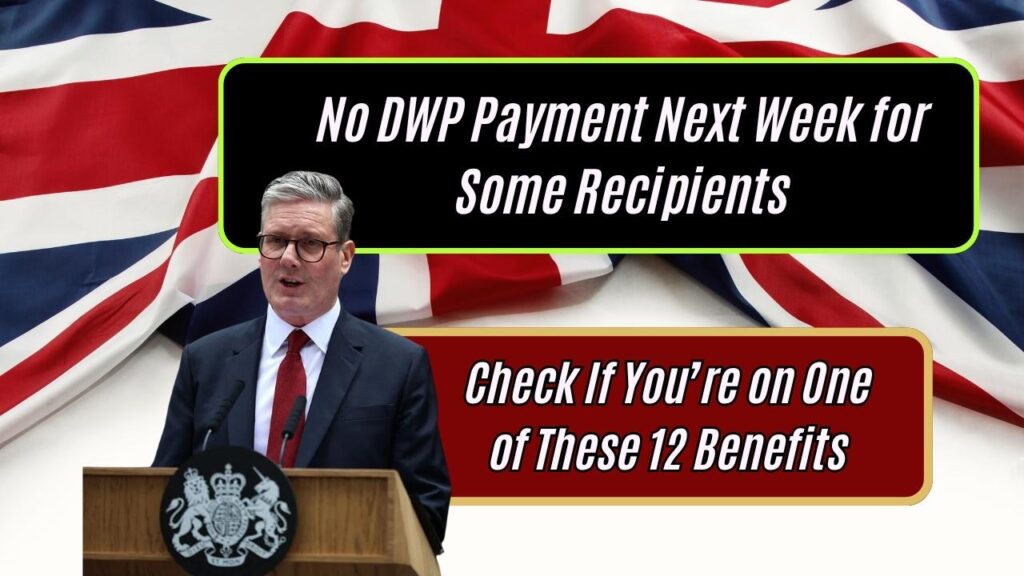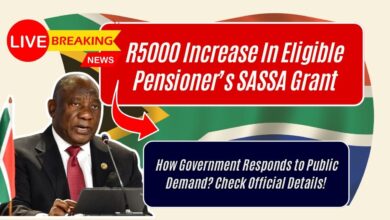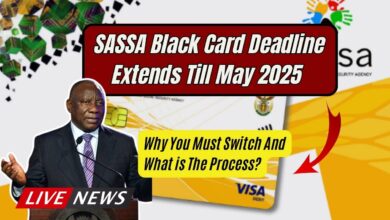No DWP Payment Next Week for Some Recipients: Check If You’re on One of These 12 Benefits!
No DWP Payment Next Week for Some Recipients – If you’re receiving benefits in the UK, you might have noticed some changes in your payment schedule around bank holidays—especially with the upcoming Spring Bank Holiday on Monday, May 26, 2025. The Department for Work and Pensions (DWP) and HM Revenue & Customs (HMRC) typically pause payment processing on bank holidays, which means some recipients will not get a payment next week as usual.

This article digs into why certain benefits won’t be paid on the holiday, which 12 major benefits are affected, how to check your payment schedule, and practical tips for handling these changes. Whether you’re on Universal Credit, State Pension, or other key benefits, you’ll find essential insights to keep your finances steady and avoid surprises.
No DWP Payment Next Week for Some Recipients
| Aspect | Details |
|---|---|
| Reason for No Payment Next Week | Spring Bank Holiday on Monday, May 26, 2025, causing payments to be moved or delayed |
| Affected Benefits | Universal Credit, State Pension, PIP, DLA, Carer’s Allowance, ESA, Income Support, JSA, Child Benefit, etc. |
| Early Payment Date | Many payments were made early on Friday, May 23, 2025 |
| How to Check Payment Schedule | Use your DWP online account or official gov.uk resources |
| What To Do If Payment Is Missing | Contact your bank first, then DWP if necessary |
| Scam Warning | Beware of fraudsters claiming to help with benefits during payment changes |
| Mental Health Impact | Payment delays can cause stress; support is available |
| Latest Info Source | gov.uk – How to have your benefits paid |
The no DWP payment next week headline is mainly due to the Spring Bank Holiday on May 26, 2025, leading to early payment on Friday, May 23 for many recipients. Understanding the payment schedule changes helps you avoid confusion, manage your budget, and take action if payments don’t arrive. Always rely on official sources, protect yourself from scams, and seek support when needed. Staying informed and prepared is the best way to keep your financial health solid.
Historical Context: Why Does the DWP Adjust Payments Around Bank Holidays?
For years, the DWP has followed a standard practice of adjusting benefit payment dates around bank holidays. This is because banks and payment processors do not operate on these days, potentially causing delays. To avoid inconvenience, the DWP processes payments one or two business days earlier, ensuring recipients get their funds in time to cover expenses.
This proactive approach aims to protect claimants from missing essential payments. However, if you’re not expecting this adjustment, it can feel like your payment was skipped altogether. Understanding this helps clear up confusion and reduces worries.
Which Benefits Are Affected by the Payment Schedule Change?
The payment timing adjustment impacts many benefits overseen by the DWP, including:
- Universal Credit (UC)
- State Pension
- Personal Independence Payment (PIP)
- Disability Living Allowance (DLA)
- Carer’s Allowance
- Employment and Support Allowance (ESA)
- Income Support
- Jobseeker’s Allowance (JSA)
- Child Benefit
- Attendance Allowance
- Industrial Injuries Disablement Benefit
- Bereavement Support Payment
If you receive any of these, your next payment may come earlier than usual, or there might be no payment on the holiday itself.
How Payment Timing Can Affect Your Budget: Real-World Examples?
Imagine you normally receive your Universal Credit on the 26th of every month. With the Spring Bank Holiday, this payment arrives on the 23rd instead. This early payment might throw off your usual monthly budget—perhaps rent is due on the 27th, and you need to manage expenses differently.
Conversely, if your payment is delayed because of the holiday falling on a weekend, you might face a shortfall on expected days. This can affect grocery shopping, bill payments, or transportation costs.
Planning ahead for these changes helps avoid stress and financial strain.
Digital Tools and Apps to Track Your Benefits
Staying updated on payment dates is easier with digital help. Consider using:
- The Universal Credit app (official DWP app), which notifies you of payment dates and updates.
- Third-party tools like Turn2Us Benefit Calculator or Entitledto to estimate your benefits and track changes.
- Calendar reminders synced to your device to alert you before payment dates.
Using these resources helps you never miss a beat on your benefits.
Beware of Scams and Fraud During Payment Changes
Unfortunately, scammers often target benefit recipients, especially during payment schedule changes. Common scams include:
- Calls or messages pretending to be from DWP, asking for personal info or bank details.
- Offers of “fast-track” payments or “special help” in exchange for fees.
- Fake websites mimicking official gov.uk pages.
Never share your bank details or National Insurance number over unsolicited calls or emails. Always verify through official channels: gov.uk or the official DWP contact numbers.
Mental Health and Payment Timing: Recognizing the Impact
Payment delays or shifts can cause anxiety and stress, especially for those living paycheck to paycheck. Feeling uncertain about finances can affect your wellbeing.
If you’re struggling, reach out to support organizations like:
- Mind UK (mental health charity)
- Citizens Advice (financial and legal advice)
- Local community groups offering emergency help
Remember, you’re not alone, and support is available.
Local Support Networks and Charities to Consider
If payment delays put you in a tight spot, several charities and community groups can assist:
- Food banks (check Trussell Trust or local listings)
- Local council hardship funds
- Turn2Us for financial support and grants
- Shelter UK for housing-related help
These resources provide vital support when benefits are delayed or insufficient.
Communicating with Employers and Landlords
If your payment shift affects your ability to pay rent or bills on time:
- Inform your landlord or utility provider about the payment adjustment proactively. Most will be understanding if you communicate early.
- Discuss payment plans or deferrals if needed.
- Keep records of these communications for your protection.
Being upfront can prevent late fees or misunderstandings.
How to Check Your Benefit Payment Schedule?
Follow these steps:
- Log into your DWP or Universal Credit online account to see your payment calendar.
- Visit gov.uk – How to have your benefits paid for detailed info.
- Call your bank or building society to confirm receipt.
- Contact DWP helpline if payments are missing.
2025 Bank Holidays Payment Schedule Reference
| Bank Holiday | Date | Usual Payment Adjustment |
|---|---|---|
| New Year’s Day | Jan 1, 2025 | Payment moved to Dec 31, 2024 |
| Good Friday | Apr 18, 2025 | Payment moved to Apr 17, 2025 |
| Easter Monday | Apr 21, 2025 | Payment moved to Apr 18 or earlier |
| Early May Bank Holiday | May 5, 2025 | Payment moved to May 2, 2025 |
| Spring Bank Holiday | May 26, 2025 | Payment moved to May 23, 2025 |
| Summer Bank Holiday | Aug 25, 2025 | Payment moved to Aug 22, 2025 |
| Christmas Day | Dec 25, 2025 | Payment moved to Dec 24, 2025 |
| Boxing Day | Dec 26, 2025 | Payment moved to Dec 24 or 23, 2025 |
£749 Per Month for Half a Decade? DWP’s Long-Term PIP Scheme Explained
DWP Claimants Get Free Driving Lessons Under New Motability Scheme – Apply Now!
Universal Credit Alert: New DWP Rule Means £420 More Each Year – Full Details Inside!
FAQs About No DWP Payment Next Week for Some Recipients
Q1: Why am I not getting my DWP payment next week?
Payments are adjusted for bank holidays and may arrive early or be delayed.
Q2: Which benefits are affected?
Universal Credit, State Pension, PIP, DLA, Carer’s Allowance, ESA, Income Support, JSA, Child Benefit, and others.
Q3: How do I know my exact payment date?
Check your DWP or Universal Credit online account or official gov.uk resources.
Q4: What should I do if I don’t receive my payment?
First, contact your bank. If missing, call the DWP helpline.
Q5: How can I protect myself from scams during this time?
Only share personal info via official channels; beware of unsolicited contacts.
Q6: Can I get help if I’m financially struggling due to payment delays?
Yes, reach out to local charities, food banks, and support organizations.







